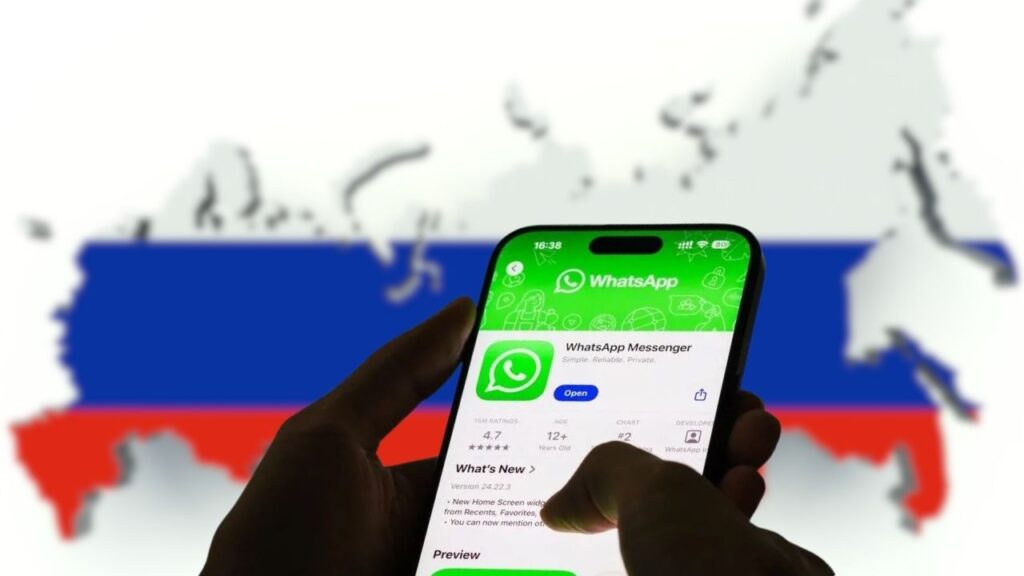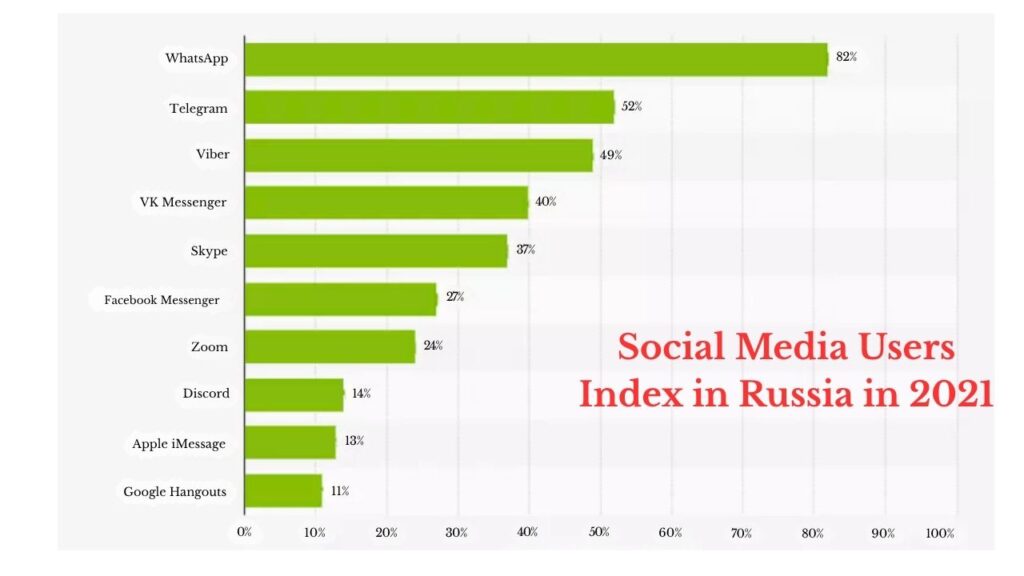Russia’s decision to ban WhatsApp signals a major shift in the country’s digital landscape, affecting millions of users, businesses, and even families staying connected across borders. In this comprehensive guide, we’ll walk you through why this is happening, how it impacts daily life, what alternatives are available, and practical steps for both everyday users and professionals. Our focus is on providing clear, accurate, and actionable information—so you can make informed decisions, no matter your age, job, or technical expertise.

WhatsApp Faces Exit from Russia
| Aspect | Details |
|---|---|
| Current Status | WhatsApp still operational, but authorities are urging a shift; official ban likely by September 1, 2025 |
| User Base | Approximately 97 million active users (68% of smartphone owners) use WhatsApp in Russia |
| Reason for Ban | Parent company Meta labeled “extremist”; concerns over data sharing and national security |
| Replacement App | MAX—a government-backed “super app” integrating messaging, ID, payments, and more |
| Other Blocked Apps | Facebook, Instagram, Viber, Signal already blocked; Telegram still available for now |
| Legal Deadline | Restrictions on “unfriendly” software to take effect by September 1, 2025 |
| Data Localization | Apps must store user data in Russia and share with authorities when required |
| Penalties | Fines possible for individuals and businesses using banned services |
| Official Resource | Federal Service for Supervision of Communications, Information Technology and Mass Media (Roskomnadzor) |
Russia’s impending ban on WhatsApp is a major development with far-reaching consequences for individuals, families, and businesses. It reflects the government’s determination to control its digital space, even at the cost of convenience and privacy. By understanding the reasons behind the ban, exploring alternatives, and taking proactive steps, you can navigate these changes with confidence.
For professionals, this is a reminder of the importance of digital agility and preparedness. For everyone, it’s a call to stay informed and adapt to new realities in global communication.
Understanding Russia’s Push for Digital Sovereignty
Russia’s campaign to restrict foreign apps like WhatsApp isn’t just about banning a popular messaging platform. It’s part of a broader policy called digital sovereignty—the idea that Russia should control its own digital space, rather than relying on technologies and companies based in countries viewed as unfriendly, especially after recent international sanctions.
Over the past few years, Russia has blocked access to both Facebook and Instagram, and more recently, apps like Viber and Signal. The government argues that these platforms threaten national security by refusing to hand over user data or by being influenced by foreign governments. As a result, Russian authorities are actively developing and promoting homegrown alternatives, such as the MAX app, which is being positioned as the national standard for digital communication.
This policy shift is happening under the oversight of Roskomnadzor, Russia’s federal communications regulator, which publishes official updates and guidelines for both companies and citizens. The goal is to give the government more oversight over how Russians communicate, share information, and conduct business online.
Why WhatsApp Is in the Crosshairs
With over 97 million users, WhatsApp is by far the most widely used messaging app in Russia. It’s as much a part of daily life as texting or calling—used for everything from family chats to school updates and business deals. So why is Russia preparing to ban such a vital service?
The key issue is ownership. WhatsApp is owned by Meta—the same company behind Facebook and Instagram, both of which are already banned in Russia. Since Russia declared Meta an “extremist organization,” all its services are now under scrutiny. Russian officials claim Meta refuses to comply with local laws, especially when it comes to sharing user data with law enforcement. They also argue that foreign apps could be used by outside groups to spread information the government does not approve of.
To replace these international platforms, Russian authorities are backing MAX, a new “super app” developed by VK (the company that runs Russia’s largest social network). The idea is that MAX will offer not just messaging, but also digital ID, payments, and access to government services—becoming a one-stop-shop for digital life in Russia.

The MAX App: Features, Promises, and Concerns
MAX is being positioned as the future of digital communication in Russia. Here’s what’s known so far about its features and how it compares to WhatsApp:
- Messaging: Like WhatsApp, MAX supports text, voice, and video chats, but with deeper integration into Russian government and business systems.
- Digital Identity: MAX will allow users to verify their identity using government-issued documents, simplifying access to official services.
- Payments: Users can make payments, transfer money, and even pay bills directly within the app.
- Government Services: MAX will provide access to public services, such as getting official documents, paying taxes, or registering property.
- Data Storage: All user data will be stored on servers located inside Russia—a legal requirement for apps operating in the country. This also means Russian authorities can request access to user information when needed.
Promises and Concerns:
While MAX promises convenience and a unified digital experience, there are real concerns about privacy and freedom of speech. Unlike WhatsApp, which uses end-to-end encryption (meaning only the sender and receiver can read messages), MAX does not provide the same level of privacy. All messages and data could theoretically be accessed by authorities under Russian law. Critics worry that this could lead to increased surveillance and make it easier for the government to monitor dissent.
When Will the Ban Happen? What Should Users Expect?
Russian authorities have set a deadline of September 1, 2025, for new restrictions on software from “unfriendly countries.” This is widely seen as the likely date for WhatsApp to be officially blocked. While the app still works for now, users are being urged to prepare for its removal.
What happens after the ban?
When WhatsApp is blocked, you won’t be able to send or receive messages, calls, or files through the app in Russia. Your existing chats and media will remain on your phone, but you won’t be able to back them up to the cloud or retrieve new messages. Businesses that use WhatsApp for customer support or team communication will need to switch to another platform immediately.
Will there be penalties?
Russian law allows for fines if individuals or businesses continue to use banned software. The exact amount and enforcement remain unclear, but it’s best to avoid relying on WhatsApp once the block is in place.
What Are the Alternatives to WhatsApp in Russia?
If WhatsApp is banned, what options do ordinary users, families, and businesses have? Here’s a closer look at the alternatives:
- MAX: The government’s preferred replacement. It’s new, so users will need some time to adapt, but it’s designed to be a comprehensive solution for messaging, payments, and government services.
- Telegram: Currently, Telegram remains available in Russia. It offers strong privacy features and is popular for both personal and professional use. However, there’s uncertainty about how long it will remain accessible, since it’s also developed outside Russia.
- Email and SMS: These older technologies are still widely used in Russia and remain unaffected by app bans.
- VPNs: Some users may be tempted to use a VPN (Virtual Private Network) to bypass the ban and access WhatsApp or other blocked services. However, Russia has been actively cracking down on VPNs, and using one could be risky or even illegal.
For families and friends staying in touch:
If you have relatives or friends abroad, it may become more challenging to communicate easily. Consider setting up alternative channels, such as email or international calling services, before the ban takes effect.
For businesses:
Now is the time to migrate customer communication to alternative platforms. Train your staff, update your contact information on your website and social media, and notify your clients about the change.
The Bigger Picture: Russia’s Digital Future
Russia’s move to ban WhatsApp is part of a much larger trend toward digital sovereignty. The country wants to reduce its dependence on foreign technology, especially from countries that have imposed sanctions against Russia. By controlling the platforms its citizens use, the government aims to have more oversight over information flow, prevent the spread of dissent, and support domestic tech companies.
This policy isn’t unique to Russia—other countries are also taking steps to regulate foreign tech companies and promote local alternatives. However, critics argue that such measures can limit free speech, reduce privacy, and make it harder for people to communicate freely.
For professionals in tech, communications, or international business, these changes are a reminder of how quickly digital landscapes can shift—and the importance of staying informed, flexible, and prepared for sudden disruptions.
Practical Steps: What You Can Do Now
To help you navigate these changes, here’s a step-by-step guide for both individual users and businesses:
Step 1: Back Up Your WhatsApp Data
Before the ban takes effect, export your chat history, photos, and important contacts from WhatsApp. Store these backups securely, either on your device or an external drive.
Step 2: Explore and Test Alternatives
Download and try out MAX, Telegram, and any other approved apps. Get familiar with their features, privacy settings, and how they integrate with other services you use.
Step 3: Update Your Contacts
Let friends, family, and business partners know about your new contact details. Update your information on social media, websites, and business listings.
Step 4: Train Yourself and Your Team
If you run a business, organize training sessions for your employees. Make sure everyone knows how to use the new tools and understands the importance of compliance.
Step 5: Stay Informed
Keep an eye on official announcements from Roskomnadzor and trusted news sources. The situation may change, and new regulations or alternatives could emerge.
Step 6: Plan for International Communication
If you regularly communicate with people outside Russia, consider setting up alternative channels now. Email, international calling cards, and other platforms may become more important.
Meta Launches New AGI Lab to Dominate the Future of Artificial Intelligence
FAQs About WhatsApp Faces Exit from Russia
Q: When will WhatsApp be banned in Russia?
A: The government has indicated that restrictions on “unfriendly” software, including WhatsApp, will take effect by September 1, 2025.
Q: What happens to my WhatsApp account if it’s banned?
A: You will no longer be able to send or receive messages. Your existing chats will remain on your device, but you won’t be able to back them up to the cloud or retrieve new messages.
Q: Are there penalties for using WhatsApp after the ban?
A: Yes, fines are possible for individuals and businesses that continue to use banned services, though enforcement details are still being clarified.
Q: Is Telegram safe to use in Russia?
A: Telegram is still available for now, but its future in Russia is uncertain. It offers strong privacy features, but users should stay informed about any changes in policy.
Q: What about privacy with Russian apps like MAX?
A: Russian law requires apps to store data locally and share it with authorities if requested. This means less privacy compared to WhatsApp’s end-to-end encryption.
Q: Can I use a VPN to access WhatsApp after the ban?
A: VPNs may work temporarily, but Russia has been cracking down on VPN providers. Using a VPN to access banned services could be risky or illegal.










